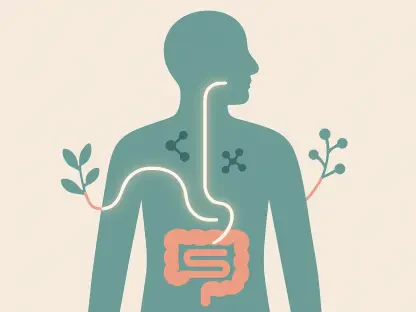What if the unseen stressors of a global health crisis were aging our brains, even if they are never infected by the virus itself? As society grapples with the aftermath of the COVID-19 pandemic, new research uncovers an unexpected consequence: accelerated brain aging due to non-infection-related stressors. This revelation shifts focus from the immediate health threats to long-term impacts on mental well-being, posing questions about how the pandemic silently affects society.
Unearthing the Silent Impact of the Pandemic on Our Brains
Amidst the urgency of medical interventions and vaccine distributions, the subtle effects of pandemic stress on brain health remained largely undetected until now. Unlike the evident burden on the respiratory and immune systems, the toll on mental faculties silently emerged, with studies now revealing that stressors like isolation and societal disruptions contribute significantly to brain aging. This crucial finding extends beyond those with COVID-19 infections, suggesting a broader, more elusive consequence of the global health crisis.
The Nuance of Brain Health in a Recovering World
Understanding the intricacies of brain health in the wake of a pandemic becomes paramount as communities stride toward recovery. This concern transcends individual well-being, directly influencing societal health and functionality. Furthermore, the link between mental resilience and an overall recovery trajectory underscores the need to prioritize neurological well-being in public health discourses. As such, these findings inject a fresh perspective into ongoing dialogues about pandemic repercussions and the intricate paths toward a healthier post-pandemic society.
Insightful Research from the University of Nottingham
Findings from the University of Nottingham provide compelling evidence of the pandemic’s implicit effect on brain aging. Conducted through longitudinal brain scans from the UK Biobank, the study employed advanced imaging techniques and machine learning to ascertain the brain age of nearly 1,000 participants. Interestingly, even individuals free from COVID-19 infection exhibited signs of premature brain aging, attributed largely to stress-related environmental factors. This contrasts with infected individuals, where explicit cognitive declines add another layer of complexity to the pandemic’s impact.
Expert Voices and Intriguing Revelations
Dr. Ali-Reza Mohammadi-Nejad, a key investigator, expresses awe at the extent of brain aging in non-infected individuals, affirming the pandemic’s profound impact beyond illness. Experts such as Professors Dorothee Auer and Stamatios Sotiropoulos remarked on the unique opportunity the pandemic offers to understand how significant life events influence brain health patterns. The extraordinary circumstances have unwrapped an intricate balance between environmental stressors and mental integrity, inevitably molding an urgent need for heightened awareness and proactive strategies.
Charting a Course for Brain Health Preservation
As the research unravels the potential vulnerability of our brains, it also offers optimism by indicating possibilities for mitigation and reversibility. Emphasizing actionable steps to fortify brain health, researchers suggest lifestyle changes, stress-reduction practices, and community support as vital strategies. The resilience of the human brain opens pathways to counteract aging effects, serving as a reminder of the power in proactive and collective action. Through awareness and responsive measures, communities can spearhead a movement toward not only recovery but also mental wellness fortification.









